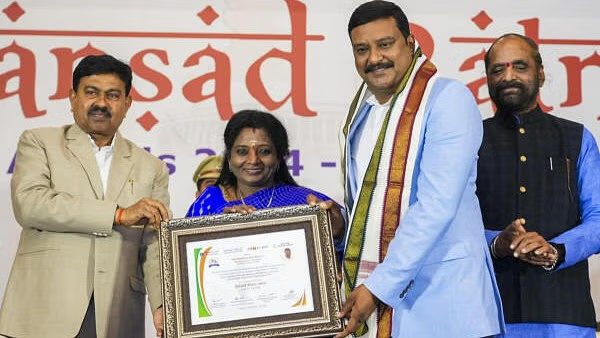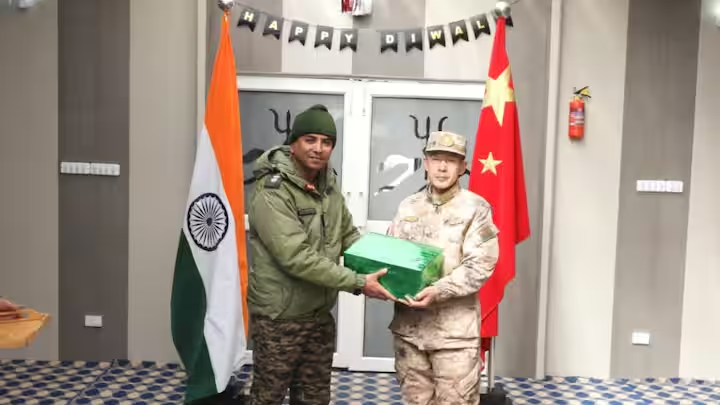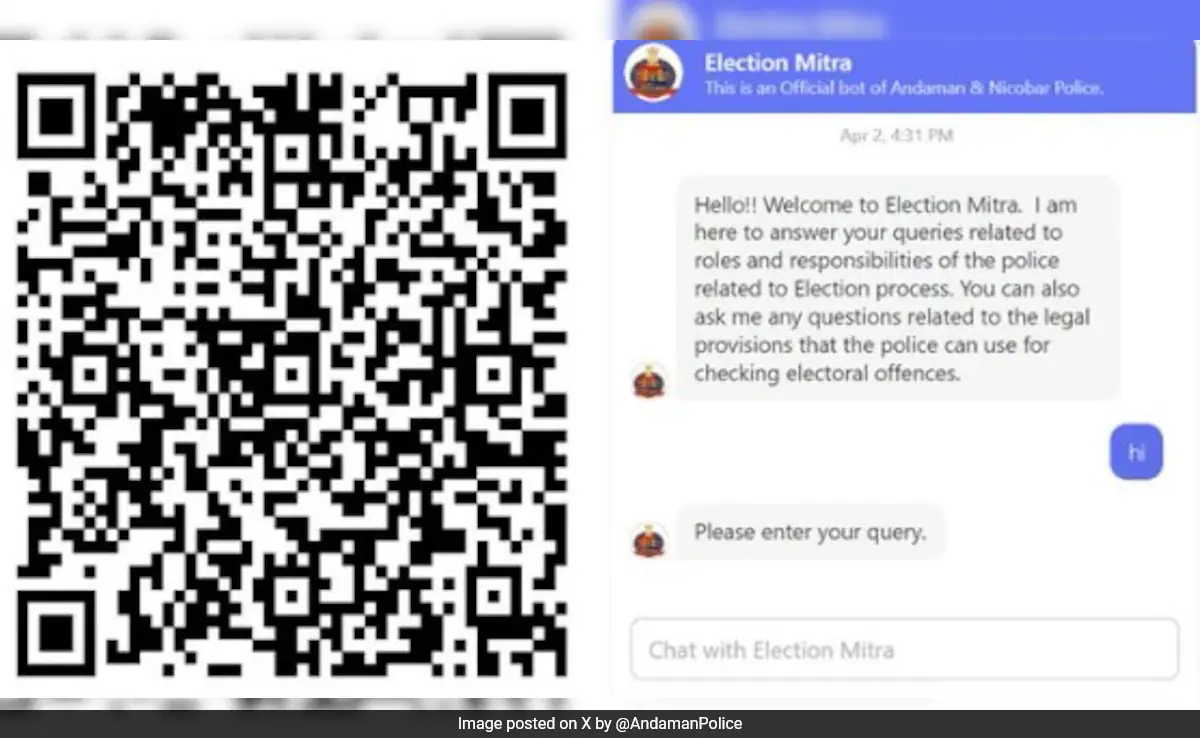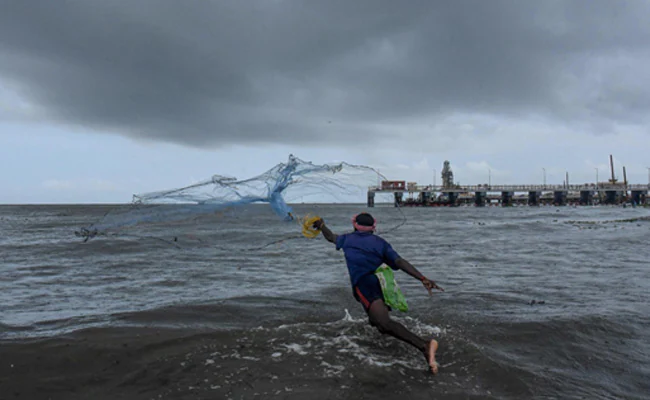Home / andaman-nicobar / Historic First: Andaman's Jarawa Tribe Members Enrolled as Voters, Marking a New Chapter in India's Democracy
Historic First: Andaman's Jarawa Tribe Members Enrolled as Voters, Marking a New Chapter in India's Democracy
By: My India Times
5 minutes read 56Updated At: 2025-03-07

Port Blair, Andaman and Nicobar Islands: In a momentous stride towards inclusivity, 19 members of the reclusive Jarawa tribe from the Andaman and Nicobar Islands have been enrolled in the electoral process and issued voter ID cards for the first time. This landmark event highlights India’s commitment to ensuring democratic rights for all its citizens, including those belonging to Particularly Vulnerable Tribal Groups (PVTGs).
The historic achievement was overseen by Chief Secretary Chandra Bhushan Kumar, who personally handed over the voter ID cards to the tribe members at their settlement in Jirkatang, South Andaman. The move is being hailed as a significant milestone in India’s democratic evolution, ensuring that even the most isolated communities have a voice in governance.
Bridging the Gap While Preserving Culture
The enrollment process was meticulously designed to respect the tribe’s cultural uniqueness and minimize external interference. South Andaman District Election Officer Arjun Sharma emphasized the need for a delicate approach that upheld the dignity of the Jarawas while integrating them into the country’s electoral framework.
“We adopted a comprehensive measure to uphold the unique identity of the Jarawa community while ensuring that their privacy and cultural heritage remain intact. The process was conducted in a manner that maximized their understanding of their rights as Indian citizens while minimizing any intrusion into their daily lives,” Sharma told PTI.
The initiative reflects a careful balance between democratic inclusivity and cultural preservation. Government officials ensured that no part of the process disrupted the Jarawas’ traditional way of life while granting them an opportunity to participate in the democratic process.
A Thoughtful Approach to Awareness and Engagement
A critical role in this initiative was played by the Andaman Adim Janjati Vikas Samiti (AAJVS), a body responsible for the welfare of indigenous communities in the region. The AAJVS spearheaded an awareness campaign, using culturally sensitive methods to educate the Jarawas about the electoral process.
Unlike conventional methods of voter outreach, the AAJVS tailored its approach to align with the Jarawas’ unique understanding of governance. “We used storytelling, symbolic gestures, and other non-intrusive means to explain the importance of elections, ensuring that their participation was voluntary and well-informed,” an official from the AAJVS stated.
This approach helped instill a sense of empowerment among the Jarawas, allowing them to exercise their rights without feeling pressured or overwhelmed by external influences.
A Glimpse into the Jarawa Community
The Jarawas are one of the oldest indigenous tribes of the Andaman Islands, known for their semi-nomadic lifestyle and deep-rooted connection to nature. They primarily inhabit the western coasts of South and Middle Andaman Islands, relying on forest resources for sustenance and maintaining minimal contact with the outside world.
For centuries, the Jarawas have remained secluded, preserving their rich cultural heritage and unique way of life. Unlike other indigenous groups that have gradually assimilated into modern society, the Jarawas have resisted external influences, choosing to maintain their distinct identity.
First Friendly Contact: A Turning Point in Relations
The first recorded significant friendly contact between the Jarawas and outsiders occurred in April 1996, marking a crucial moment in their history. This event unfolded when a young Jarawa tribesman named Enmei suffered a severe fracture in his left ankle.
The Andaman and Nicobar administration extended medical assistance to Enmei, ensuring he received proper treatment. Once he recovered, he was safely returned to his settlement, fostering a newfound sense of trust between the tribe and the outside world.
“This incident was a turning point in the relationship between the Jarawas and the administration. It helped build mutual trust and respect, setting the stage for further engagement,” District Election Officer Arjun Sharma recounted.
The Road Ahead: Balancing Rights and Cultural Integrity
While the enrollment of the Jarawas as voters is a historic step, it also raises critical discussions about maintaining their cultural integrity in an era of modernization. Experts and tribal welfare advocates stress that any engagement with the Jarawas must be approached with utmost sensitivity to prevent any form of cultural erosion.
The Andaman and Nicobar administration has assured that its approach remains focused on non-intrusive development, where the Jarawas retain their traditional lifestyle while gaining access to fundamental rights. “We recognize the importance of preserving their way of life while ensuring they are not deprived of their constitutional rights,” a senior official emphasized.
By enrolling the Jarawas as voters, India has set a precedent for striking a balance between democratic inclusion and cultural preservation. As the world watches this unique integration unfold, the coming years will be crucial in determining how such initiatives shape the future of indigenous communities in the country.
A Symbol of India’s Democratic Commitment
The inclusion of the Jarawa tribe in the electoral process symbolizes India’s broader vision of an inclusive democracy, where every citizen, irrespective of their background, has a role to play in shaping the nation’s governance. This milestone underscores the country’s efforts to extend democratic rights to all its people while honoring and safeguarding their diverse cultural identities.
As India continues to evolve as a global democracy, initiatives like these serve as a testament to its dedication to inclusivity, equity, and respect for indigenous communities. The journey of the Jarawas from seclusion to participation in the electoral process marks not just a historic first for the Andaman Islands but a transformative moment in India’s democratic fabric.
....Port Blair, Andaman and Nicobar Islands: In a momentous stride towards inclusivity, 19 members of the reclusive Jarawa tribe from the Andaman and Nicobar Islands have been enrolled in the electoral process and issued voter ID cards for the first time. This landmark event highlights India’s commitment to ensuring democratic rights for all its citizens, including those belonging to Particularly Vulnerable Tribal Groups (PVTGs).
The historic achievement was overseen by Chief Secretary Chandra Bhushan Kumar, who personally handed over the voter ID cards to the tribe members at their settlement in Jirkatang, South Andaman. The move is being hailed as a significant milestone in India’s democratic evolution, ensuring that even the most isolated communities have a voice in governance.
Bridging the Gap While Preserving Culture
The enrollment process was meticulously designed to respect the tribe’s cultural uniqueness and minimize external interference. South Andaman District Election Officer Arjun Sharma emphasized the need for a delicate approach that upheld the dignity of the Jarawas while integrating them into the country’s electoral framework.
“We adopted a comprehensive measure to uphold the unique identity of the Jarawa community while ensuring that their privacy and cultural heritage remain intact. The process was conducted in a manner that maximized their understanding of their rights as Indian citizens while minimizing any intrusion into their daily lives,” Sharma told PTI.
The initiative reflects a careful balance between democratic inclusivity and cultural preservation. Government officials ensured that no part of the process disrupted the Jarawas’ traditional way of life while granting them an opportunity to participate in the democratic process.
A Thoughtful Approach to Awareness and Engagement
A critical role in this initiative was played by the Andaman Adim Janjati Vikas Samiti (AAJVS), a body responsible for the welfare of indigenous communities in the region. The AAJVS spearheaded an awareness campaign, using culturally sensitive methods to educate the Jarawas about the electoral process.
Unlike conventional methods of voter outreach, the AAJVS tailored its approach to align with the Jarawas’ unique understanding of governance. “We used storytelling, symbolic gestures, and other non-intrusive means to explain the importance of elections, ensuring that their participation was voluntary and well-informed,” an official from the AAJVS stated.
This approach helped instill a sense of empowerment among the Jarawas, allowing them to exercise their rights without feeling pressured or overwhelmed by external influences.
A Glimpse into the Jarawa Community
The Jarawas are one of the oldest indigenous tribes of the Andaman Islands, known for their semi-nomadic lifestyle and deep-rooted connection to nature. They primarily inhabit the western coasts of South and Middle Andaman Islands, relying on forest resources for sustenance and maintaining minimal contact with the outside world.
For centuries, the Jarawas have remained secluded, preserving their rich cultural heritage and unique way of life. Unlike other indigenous groups that have gradually assimilated into modern society, the Jarawas have resisted external influences, choosing to maintain their distinct identity.
First Friendly Contact: A Turning Point in Relations
The first recorded significant friendly contact between the Jarawas and outsiders occurred in April 1996, marking a crucial moment in their history. This event unfolded when a young Jarawa tribesman named Enmei suffered a severe fracture in his left ankle.
The Andaman and Nicobar administration extended medical assistance to Enmei, ensuring he received proper treatment. Once he recovered, he was safely returned to his settlement, fostering a newfound sense of trust between the tribe and the outside world.
“This incident was a turning point in the relationship between the Jarawas and the administration. It helped build mutual trust and respect, setting the stage for further engagement,” District Election Officer Arjun Sharma recounted.
The Road Ahead: Balancing Rights and Cultural Integrity
While the enrollment of the Jarawas as voters is a historic step, it also raises critical discussions about maintaining their cultural integrity in an era of modernization. Experts and tribal welfare advocates stress that any engagement with the Jarawas must be approached with utmost sensitivity to prevent any form of cultural erosion.
The Andaman and Nicobar administration has assured that its approach remains focused on non-intrusive development, where the Jarawas retain their traditional lifestyle while gaining access to fundamental rights. “We recognize the importance of preserving their way of life while ensuring they are not deprived of their constitutional rights,” a senior official emphasized.
By enrolling the Jarawas as voters, India has set a precedent for striking a balance between democratic inclusion and cultural preservation. As the world watches this unique integration unfold, the coming years will be crucial in determining how such initiatives shape the future of indigenous communities in the country.
A Symbol of India’s Democratic Commitment
The inclusion of the Jarawa tribe in the electoral process symbolizes India’s broader vision of an inclusive democracy, where every citizen, irrespective of their background, has a role to play in shaping the nation’s governance. This milestone underscores the country’s efforts to extend democratic rights to all its people while honoring and safeguarding their diverse cultural identities.
As India continues to evolve as a global democracy, initiatives like these serve as a testament to its dedication to inclusivity, equity, and respect for indigenous communities. The journey of the Jarawas from seclusion to participation in the electoral process marks not just a historic first for the Andaman Islands but a transformative moment in India’s democratic fabric.
By: My India Times
Updated At: 2025-03-07
Tags: andaman-nicobar News | My India Times News | Trending News | Travel News
Join our WhatsApp Channel










































































































.png)
 (1).png)























